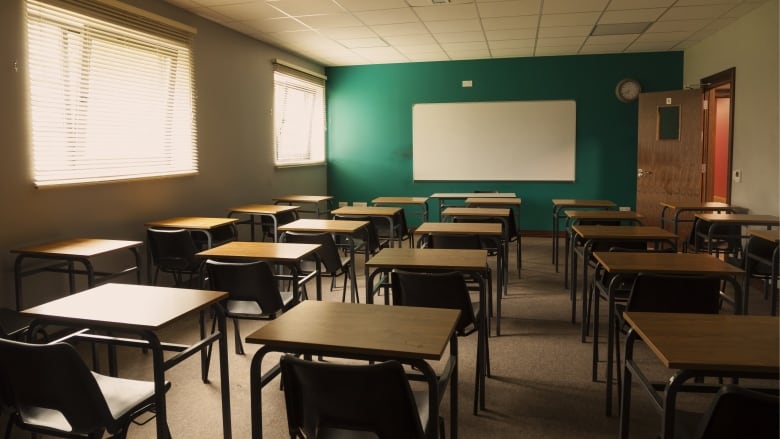Sask.'s back-to-school plan leaves more questions than answers for substitute teachers
Substitute teaching is challenging enough without the stress of a global pandemic

Substitute teaching has many significant inherent challenges.
Classes are larger and their compositions are increasingly complex. Subs are unfamiliar with specific students' needs and classroom procedures. They have to be flexible enough to teach subjects and ages outside of their comfort level and to deal with the transience of travelling between classrooms and schools.
Nothing is ever "normal" when a sub is teaching.
Subs do not get the same health benefits, sick days or pay as other teachers. The general unreliability of work means that many of us have other jobs to make ends meet.
Substitute teaching is challenging enough without the stress of a global pandemic and concerns about the government's management thereof. In Saskatchewan, the past week has only made it worse.
Month of questions
I had no choice but to stop working when the province-wide school shutdown was announced in March. I accepted the short-term difficulty of unemployment with the expectation that school closures would help flatten the curve and allow the government and school divisions to compose a comprehensive plan for when school returned.
The June update from the Ministry of Education seemed to indicate that progress was being made and that there would be a meaningful, thorough plan for a safe return to school in the fall. That hope made last week's reveal of the Return to School plan and the government's response since then particularly disheartening.
I was already nervous about returning to school in the fall. I knew I would face significant exposure as a substitute teacher, as I often work in multiple classrooms in a day and multiple schools in a week.
Over the past few months, I have been pondering questions about our immediate future in the classroom:
How will substitute teachers stay safe and healthy when they are constantly travelling between schools and classrooms, especially when replacing a teacher that has been sick?
What policies, procedures and provision of PPE will the province provide school divisions to help them protect their substitute teachers?
What happens if a sub is exposed to someone with COVID-19, or asked to go into a classroom where there was a recent case?
What if a sub has to be in self-isolation when they have no sick days?
With mere weeks to go until the start of the school year, there are still few answers.- Derek Turner
I gave the government the benefit of the doubt and tried to enjoy my summer despite these lingering questions. I hoped that there would be clear, direct policy from the government to help protect substitute teachers, a particularly vulnerable yet undeniably essential part of the educational workforce.
Last week's announcement dashed those hopes.
Overwhelming disappointment
I wanted the government to provide clear definitions for each phase, how it decides which phase we are in and what happens when not if there is COVID-19 transmission.
I wanted there to be funding for school divisions to provide benefits for substitute teachers such as sick days or quarantine days and to cohort students and staff including subs into smaller groups.
Mostly, I wanted well-thought-out policies and procedures that showed clear, effective leadership and consideration of the needs of students, families, and staff. That did not happen.
In the past week, I have experienced the gamut of emotions grief, anger, fear, trepidation, confusion, annoyance, frustration, exhaustion but mostly disappointment.
Disappointment that the government does not appear to have an appropriate level of concern for teachers, substitute teachers and the thousands of other professionals who work in schools, not to mention students and their families.
Disappointment that the government is abdicating leadership, thereby forcing divisions, schools, administrators, teachers, students and families to make difficult decisions without clear policy and procedure.
Disappointment that the government does not seem to be responding to the urgency seen in emails, social media posts and protests over the past week.
Disappointment that my sacrifice of financial, emotional, and professional well-being over the past five months has been rendered meaningless by a plan that puts me at significant risk.
With mere weeks to go until the start of the school year, there are still few answers. As a substitute teacher, I'm left with the feeling that the government is not even asking the right questions.
This column is part of CBC'sOpinionsection. For more information about this section, please read thiseditor's blogand ourFAQ.
Interested in writing for us? We accept pitches for opinion and point-of-view pieces from Saskatchewan residents who want to share their thoughts on the news of the day, issues affecting their community or who have a compelling personal story to share. No need to be a professional writer!
Read more about what we're looking for here, then emailsask-opinion-grp@cbc.cawith your idea.












_(720p).jpg)


 OFFICIAL HD MUSIC VIDEO.jpg)
.jpg)



























































































